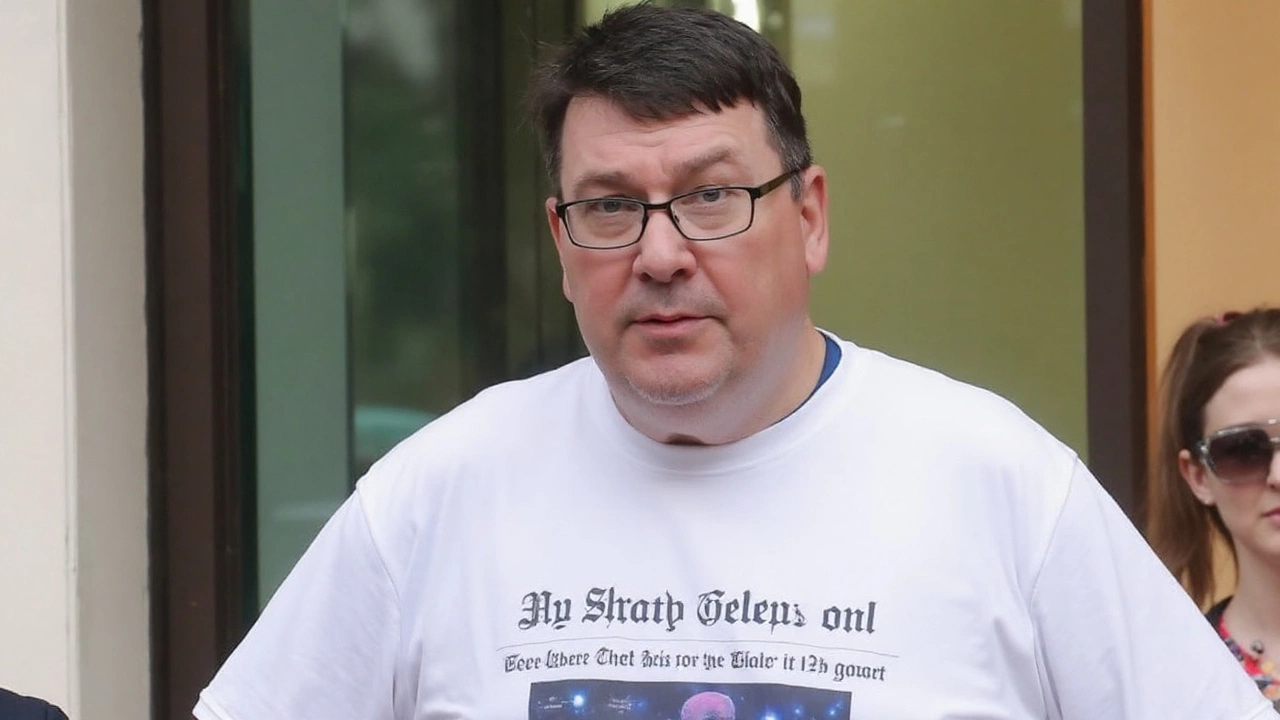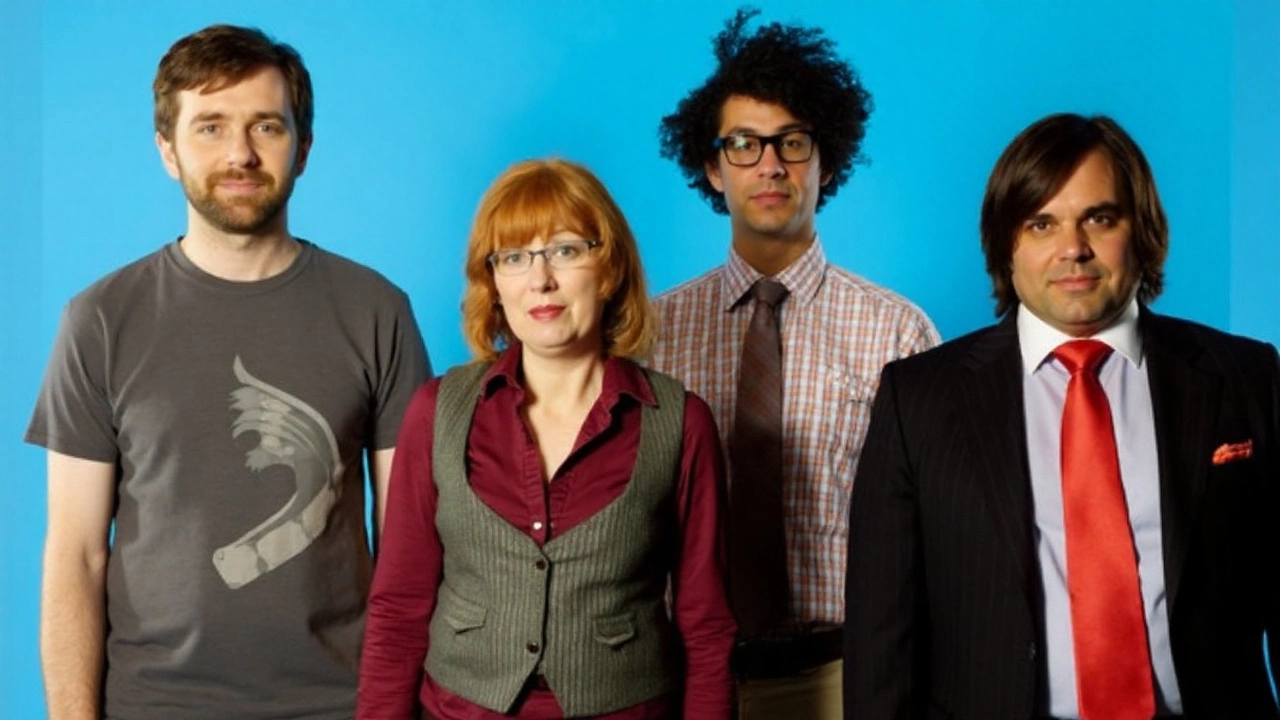Chris O’Dowd’s rare show of support for IT Crowd creator
Chris O’Dowd has broken with the industry mood to say he wishes Graham Linehan were still writing for television, even as the Irish writer’s hardline stance on transgender issues keeps him on the margins of mainstream entertainment.
In a recent interview with The Times, O’Dowd — who played Roy Trenneman on Channel 4’s The IT Crowd from 2006 to 2013 — called Linehan “the best comedy writer” he has worked with. He said he still reaches out on occasion, sharing fan messages about how the sitcom landed with them. “I have people come up to me and tell me that I’ve changed their life because of this show that I was really a small part in,” O’Dowd said. “I always get in touch with him and let him know, I just want you to know how much love I get for your work.”
O’Dowd added that he wishes Linehan “was writing more, and I wish he was in the industry more,” while also signaling he didn’t want to wade into the substance of Linehan’s views. The actor’s remarks stand out because, for years now, few high‑profile collaborators have publicly backed the writer.
Linehan’s creative track record is not in dispute. Before The IT Crowd, he co-created the Irish sitcom Father Ted, a series that became a cultural touchstone. He later co-created BBC’s Motherland, a sharp comedy about modern parenting that drew strong reviews. The dust-up today isn’t about talent; it’s about the fallout from his public crusade against transgender rights.
Linehan has said outright that his stance has consumed his life, damaging his career and personal relationships. He has described losing work, seeing his marriage collapse, and being frozen out of rooms where commissions are decided. While he frames this as the cost of speaking his mind, many in and around the industry say his language has crossed lines into dehumanizing attacks, which LGBTQ+ groups have condemned.
In 2020, Twitter (now X) permanently banned his account for “repeated violations of our rules against hateful conduct and platform manipulation.” He later returned after Elon Musk loosened moderation standards. Since then, Linehan has posted almost exclusively about transgender issues, frequently tangling with critics and supporters alike. One recent flare-up involved actor David Tennant, after Tennant wore a T-shirt backing trans youth; the exchange spilled into days of online sniping.
O’Dowd’s comments don’t erase any of that, but they do complicate the picture. They revive a familiar question: can you admire the work while rejecting the worldview? And if you try, what does that mean for the people hurt by that worldview?

How a sitcom legacy collided with a culture war
The IT Crowd’s legacy has been dragged into this fight. In 2020, Channel 4 pulled a Series 3 episode titled “The Speech” from streaming after complaints about its portrayal of a transgender character and a violent confrontation played for laughs. For many viewers, the episode reinforced harmful stereotypes at a moment when trans people already face high levels of harassment and abuse. Linehan blasted the move on his blog and said he wouldn’t work with Channel 4 again unless the episode returned.
Not everyone who worked on The IT Crowd is standing with him. Matt Berry, who played Douglas Reynholm, told Vulture he doesn’t condone what the comedy portrayed in that episode and made clear he doesn’t share the writer’s views. Others from the show have largely avoided public comment, a sign of how cautious performers and producers have become around culture-war flashpoints.
There’s a business reality here. UK broadcasters and streamers juggle creative risk with brand safety. Decisions about legacy content — whether to remove, edit, or add content warnings — are not just moral calls; they’re legal and commercial ones. When platforms host older material that clashes with today’s standards on race, gender, or sexuality, they weigh the reputational hit against the historical value, often erring on the side of caution.
For Linehan, the impact has been stark. By his own account, his calendar emptied as his online campaigning intensified. He has argued that he’s been “blacklisted,” that gatekeepers are punishing him for views he insists reflect concern for women and children. His critics counter that the issue isn’t disagreement over policy but rhetoric that degrades a marginalized group. That difference — views versus vitriol — is where most of the industry seems to draw the line.
O’Dowd’s remarks suggest another path: talk to the person, not just about them. “I don’t necessarily want to get into his views,” he said, but he also wished more people would speak with Linehan directly. That’s not a rehabilitation campaign, and it won’t satisfy those who have been targets of the writer’s online attacks. It does, however, reflect a feeling some entertainers have but rarely say out loud: that private conversations can sometimes defuse public standoffs, even when the odds of agreement are slim.
The timing of O’Dowd’s comments matters. The IT Crowd is still widely watched on various platforms and retains a loyal fan base. New audiences are discovering the show years after its 2013 finale — without “The Speech” in most official libraries — and separating that affection from the off-screen controversy isn’t simple. Cast members keep getting asked to account for it, a reminder that a creator’s politics can become a shadow cast over everyone involved.
The split between admiration for craft and rejection of conduct is hardly new in entertainment. What stands out now is how quickly reputations and livelihoods can swing based on what happens online. Social platforms amplify disputes, paint people into corners, and reward dunking. Once a figure becomes defined by a single issue, every project, credit, and quote is processed through that lens. For a writer-director whose career was built on warm, oddball sitcoms, becoming a main character in a perpetual culture war is a very different kind of fame.
There’s also a practical question hanging over this: if Linehan wanted to return to mainstream comedy, what would that take? A change in tone? An apology? A network willing to weather the storm? None of those seems imminent. Network commissioners and advertisers tend to avoid lightning rods unless the upside is undeniable. And for now, Linehan seems more focused on advocacy and online battles than new scripts and writer’s rooms.
As for O’Dowd, his standing in film and TV has only grown since his IT Crowd days, with roles in movies like Bridesmaids and a steady run of television work. His comments come from a place of professional respect — and perhaps a desire to shield the art from the argument. Whether that resonates beyond a headline or prompts any thaw in attitudes is another matter. The reaction to his interview has been measured so far, a sign that most players in British television are still choosing caution over confrontation.
The unresolved piece, and the one that keeps this story alive, is the human cost. Trans people in the UK continue to report high rates of discrimination and abuse, and language that frames them as threats has real-world consequences. That’s why the debate over The IT Crowd episode, and over Linehan’s posts, isn’t just theoretical. O’Dowd’s appeal for conversation runs into a blunt reality: for those on the receiving end, the line between ideas and harm can feel very thin.
So the tension endures. A beloved sitcom that brought deadpan absurdity to primetime now sits at the center of a deeper fight over speech, identity, and accountability. One of its stars misses a writer’s voice. The industry, and many of its audiences, remain wary of the way that voice has been used.
